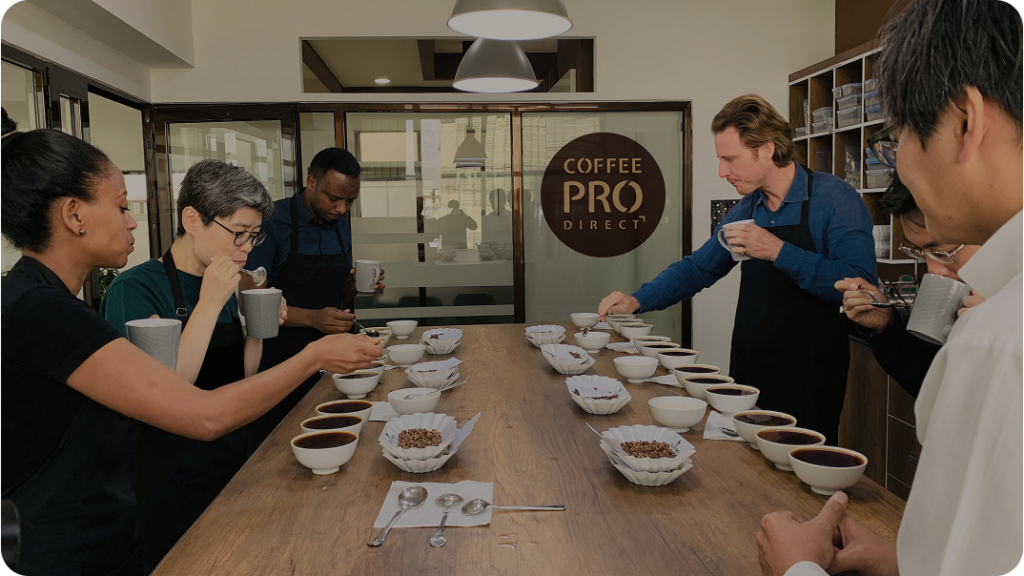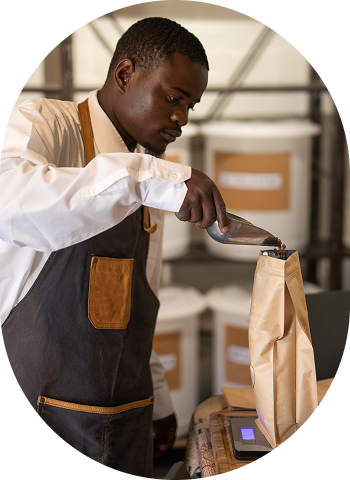
Introduction
The art of coffee roasting has evolved far beyond traditional methods, thanks to the advancement of technology and the demand for greater precision. Among the most significant innovations in the industry is the coffee lab roaster, a specialized machine designed to bring control, accuracy, and repeatability to coffee testing. Unlike large commercial roasters that focus on bulk production, a coffee lab roaster allows professionals to experiment with smaller batches, analyze results, and make well-informed decisions about roast profiles. For coffee businesses, cupping labs, and research institutions, this equipment plays a vital role in maintaining consistency, evaluating bean quality, and improving overall coffee experiences.
The Role of a Coffee Lab Roaster in Specialty Coffee
Specialty coffee demands an exceptional level of attention to detail, from sourcing green beans to brewing the perfect cup. A coffee lab roaster provides this by offering full control over variables such as temperature, airflow, and drum speed. This ensures that every batch, even at a small scale, reveals the true flavor potential of the beans. Roasters, Q-graders, and coffee researchers rely on this equipment not only to evaluate quality but also to develop consistent roast profiles that can later be scaled to production-sized machines. Without coffee lab roasters, it would be nearly impossible to maintain the exacting standards required by today’s specialty coffee industry.
Features of a Modern Coffee Lab Roaster
A high-quality coffee lab roaster is packed with features that enhance precision and usability. Many are equipped with advanced digital control panels, allowing operators to monitor roast curves in real time. Adjustable airflow systems, accurate thermocouples, and programmable roast profiles provide professionals with the flexibility to conduct repeatable experiments. Additionally, most lab roasters are compact, energy-efficient, and designed to handle sample sizes ranging from 50 grams to 2 kilograms. This balance between functionality and efficiency makes them the perfect choice for laboratories, training centers, and coffee businesses that need precise roasting without committing to large-scale output.
Coffee Lab Roasters vs. Commercial Roasters
While both coffee lab roasters and commercial roasters are essential tools in the coffee industry, they serve different purposes. Commercial roasters are designed for high-volume production, handling large batches for cafés, roasteries, and distributors. On the other hand, lab roasters focus on smaller sample sizes, giving operators the ability to test, analyze, and fine-tune roast profiles before scaling them up. A coffee lab roaster essentially acts as a testing ground for experimentation, ensuring that only the best techniques are carried forward into full production. For businesses, owning both types of roasters ensures consistency from testing to large-scale roasting.
The Importance of Precision in Coffee Testing
In the world of coffee, precision makes the difference between average and exceptional. A coffee lab roaster enables professionals to replicate roasts with incredible accuracy, making it possible to identify subtle flavor notes and defects. Whether assessing the quality of a new coffee lot or perfecting a signature roast, accuracy is critical. Without precise control, small variations in temperature or roast time could drastically alter flavor. For this reason, coffee lab roasters have become indispensable tools for Q-graders, roasters, and researchers dedicated to producing outstanding coffee experiences.
Why Coffee Labs Need Specialized Roasters
A coffee laboratory is more than just a workspace; it is a hub for research, training, and innovation. To fulfill these roles effectively, specialized tools are required. A coffee lab roaster provides the foundation for reliable testing, ensuring that green beans are evaluated under consistent conditions. This consistency is essential for fair grading, quality assessment, and research. Without dedicated lab roasters, results would be inconsistent, making it difficult to compare samples or draw accurate conclusions. For institutions that prioritize innovation and excellence, investing in specialized equipment is non-negotiable.

The Evolution of Coffee Lab Roasters
Over the years, coffee roasting technology has evolved tremendously. Early lab roasters were manual, offering minimal control and requiring extensive operator skill. Today’s coffee lab roasters incorporate advanced automation, data logging, and connectivity features that allow professionals to track and analyze results with scientific precision. This evolution has transformed how the coffee industry approaches testing and quality control, enabling roasters to achieve levels of consistency that were once unimaginable. As coffee culture continues to expand globally, lab roasters will remain at the forefront of innovation.
Training and Education with Coffee Lab Roasters
Coffee education programs and training centers rely heavily on lab roasters to teach new professionals about the intricacies of roasting. Students learn how different variables affect flavor, aroma, and body, using small samples that minimize waste while maximizing learning opportunities. A coffee lab roaster allows trainers to demonstrate concepts such as first crack, roast development, and caramelization in real time. For future roasters and Q-graders, hands-on experience with this equipment is invaluable, as it provides the foundation needed for success in the competitive coffee industry.
Sustainability and Coffee Lab Roasters
Sustainability has become a central focus for the coffee industry, and lab roasters play a role in supporting these efforts. By roasting smaller samples, businesses reduce waste and minimize energy use. A coffee lab roaster also allows producers to experiment with eco-friendly roasting methods and evaluate the impact of different processing techniques on flavor. Many modern lab roasters are designed to be energy-efficient, further reducing the environmental footprint of coffee testing. This commitment to sustainability aligns with consumer demand for responsible coffee practices, helping businesses build trust and credibility.
How to Choose the Right Coffee Lab Roaster
Selecting the right coffee lab roaster depends on several factors, including batch size, control features, and intended use. For small labs or research institutions, compact roasters with precise temperature control are ideal. Larger training centers or roasteries may require models with higher capacity and advanced software integration. Other considerations include ease of cleaning, durability, and data-logging capabilities. Since a lab roaster is an investment, businesses should prioritize reliability and flexibility, ensuring that the chosen model can adapt to evolving needs.
Coffee Lab Roasters and Global Coffee Standards
The global coffee industry follows strict standards for quality evaluation, and lab roasters are essential in maintaining compliance. Organizations such as the Specialty Coffee Association (SCA) require consistent sample roasting for cupping protocols. A coffee lab roaster ensures that beans are roasted under standardized conditions, making it possible to compare results across different regions and labs. By aligning with these standards, businesses not only ensure quality but also gain credibility in the international marketplace.
Business Location
Coffee professionals and businesses looking for premium equipment can find solutions at our location: 21st Floor, CMA Building, 64 Connaught Road Central, Hong Kong. Our expertise lies in providing high-quality tools such as the coffee lab roaster, ensuring that professionals have the precision equipment they need to succeed. Whether you are setting up a new coffee lab, upgrading your roasting tools, or exploring advanced technology, we provide tailored solutions that meet your exact requirements.
The Future of Coffee Lab Roasters
As technology advances, the future of coffee lab roasters looks even more promising. We can expect further integration of artificial intelligence, IoT connectivity, and data-driven analytics. These advancements will allow roasters to predict outcomes, adjust variables in real time, and achieve an unprecedented level of precision. As the specialty coffee industry continues to grow, the demand for reliable lab equipment will only increase, making the coffee lab roaster a cornerstone of innovation and quality assurance in the years ahead.
Conclusion
A coffee lab roaster is more than just a machine; it is the backbone of precision, quality, and consistency in the coffee industry. From training and research to quality control and sustainability, this equipment plays a critical role in every stage of the coffee journey. For businesses, owning a lab roaster ensures that they can experiment, evaluate, and innovate with confidence. As coffee culture expands globally, the importance of accurate testing and roasting will only grow, making coffee lab roasters an essential investment for anyone serious about quality.
FAQs
Q1: What is a coffee lab roaster and how is it used?
A coffee lab roaster is a specialized roasting machine designed for small sample batches, usually ranging from 50 grams to 2 kilograms. It is used in coffee laboratories, training centers, and quality control departments to test green beans, evaluate roast profiles, and ensure consistency before scaling up to commercial production.
Q2: Why is a coffee lab roaster important for specialty coffee?
Specialty coffee requires precision and consistency to highlight unique flavor notes. A coffee lab roaster allows professionals to control variables like temperature, airflow, and roast time, ensuring that every bean is roasted accurately. This precision is critical for cupping, grading, and developing signature roast profiles.
Q3: How does a coffee lab roaster differ from a commercial roaster?
A coffee lab roaster is designed for testing small samples and conducting experiments, while a commercial roaster is built for large-scale production. Lab roasters prioritize precision and control, making them ideal for research and quality assessment, whereas commercial roasters focus on efficiency and batch volume.
Q4: Who should invest in a coffee lab roaster?
Coffee lab roasters are essential for Q-graders, specialty coffee roasters, research institutions, training schools, and producers who need accurate sample evaluation. Businesses looking to maintain high standards of quality and consistency should consider investing in this equipment.
Q5: Can a coffee lab roaster help reduce waste?
Yes, one of the main benefits of a coffee lab roaster is its ability to roast small batches for testing without wasting large amounts of green coffee. This makes it an eco-friendly solution, reducing both energy consumption and unnecessary bean loss during experimentation.


